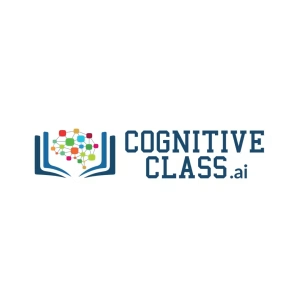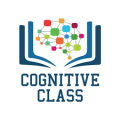- All
- Favorite
- Popular
- Most rated

Robots are coming! Build IoT apps with Watson, Swift, and Node-RED
Learn how to build IoT applications by integrating Watson, Swift, and Node-RED. Explore the world of robotics and IoT, and discover how to create smart, connected applications for the future using cutting-edge tools and technologies.

Create confusion matrices and compute metrics with Python
Understand how to create confusion matrices and compute essential model metrics in Python. Learn to evaluate classification models with metrics like accuracy, precision, recall, F1-score, and ROC-AUC to gauge their performance.

Deploy Neural Network Regularizers to Prevent Overfitting
Learn how to deploy neural network regularizers like dropout and L2 regularization to prevent overfitting in your models. Understand how regularization techniques improve model generalization, ensuring better performance on unseen data.

Learn to automate feature selection with lasso regression
Automate feature selection in your machine learning models using Lasso Regression. Learn how to use Lasso for both regression and feature selection to create more efficient and accurate predictive models by eliminating irrelevant features.

Group your data: Clustering using Python and scikit-learn
Learn how to cluster data using Python and Scikit-learn. Understand how unsupervised learning algorithms like KMeans, DBSCAN, and hierarchical clustering can be used to find patterns and group similar data points in a variety of datasets.

Data classification with Naive Bayes
Master data classification using Naive Bayes, a simple yet powerful probabilistic algorithm. Learn how to apply it to various datasets for tasks like spam detection, sentiment analysis, and classification of categorical data.

Efficient models: reduce dimensionality with LDA in Python
Learn how to reduce dimensionality and improve model efficiency using Linear Discriminant Analysis (LDA) in Python. Discover how LDA helps with classification problems by maximizing class separability while reducing noise in high-dimensional data.

Reveal House Sale Price Secrets Using Machine Learning
Unlock the secrets to predicting house sale prices using machine learning techniques. Learn how to apply regression models and feature engineering to analyze factors influencing property prices and build accurate predictive models.

Using PCA to reduce dimensionality
Master Principal Component Analysis (PCA) to reduce dimensionality in high-dimensional datasets. Learn how to transform and visualize data, uncover hidden patterns, and improve the performance of machine learning models.

Predict payment defaults using SVM with Python
Learn how to predict payment defaults using Support Vector Machines (SVM) in Python. Understand how to preprocess financial data, train SVM models, and assess their effectiveness in predicting customer behavior in the finance industry.

Find your Best Bottle of Wine with NLP
Discover how to recommend the best bottle of wine using Natural Language Processing (NLP). Learn to analyze customer reviews, wine descriptions, and preferences to build a personalized recommendation engine with Python.

Machine Learning Explainability
Understand the importance of machine learning explainability. Learn to interpret and explain complex ML models using techniques like SHAP, LIME, and other methods to ensure transparency and trust in AI predictions.

Forecasting Crypto Portfolios Like a Quant
Learn how to forecast cryptocurrency portfolio performance using advanced quantitative methods. Apply machine learning techniques to model crypto market behavior, optimize portfolios, and predict future returns with Python.

Build Recommendation Systems using Collaborative Filtering
Explore collaborative filtering to build personalized recommendation systems. Learn how to analyze user-item interactions and leverage algorithms like matrix factorization to suggest content, products, or services in e-commerce and media.

Creating anime characters using DCGANs and Keras
Dive into the world of deep learning by creating anime characters using DCGANs (Deep Convolutional Generative Adversarial Networks) and Keras. Learn how to train GANs to generate stunning and realistic anime-style artwork from scratch.

Perfume Recommendation with Sentence-BERT
Master the art of recommending perfumes using Sentence-BERT, a powerful natural language processing model. Learn how to apply NLP techniques to suggest personalized fragrances based on user preferences and scent descriptions.

Predict house prices with regression algorithms and sklearn
Learn how to predict house prices using regression algorithms in Python with Scikit-learn. Discover the power of linear regression, decision trees, and other models to build accurate predictive models for real estate and housing markets.

Video Processing – Subtracting Background with SVD
Explore video processing techniques, focusing on background subtraction using Singular Value Decomposition (SVD). Learn how to apply SVD to analyze video frames, detect motion, and extract meaningful insights from video data.

Machine Learning for Sequential Data
Learn how to apply machine learning to sequential data, such as time series or text. Master algorithms like RNNs and LSTMs to model dependencies and make predictions based on sequential patterns in data, from stock prices to natural language.

Predict credit defaults with random forest using Python
Learn how to predict credit defaults using the Random Forest algorithm in Python. Understand the data preprocessing steps, model training, and evaluation techniques that make Random Forest a powerful tool for financial risk analysis.

Machine Learning with Python
Dive into machine learning with Python. Learn to build models, preprocess data, and evaluate results using Python libraries like Scikit-learn, pandas, and numpy, to unlock powerful insights for a variety of business and data science applications.

Customer Clustering with KMeans to Boost Business Strategy
Learn how to apply the KMeans clustering algorithm to segment customers and enhance business strategies. Discover how to identify patterns, optimize marketing efforts, and drive targeted decisions using unsupervised learning techniques.

Precise Predictions: Classification for Flower and Tumors
Master classification techniques for precise predictions, including classifying flowers and detecting tumors. Learn how to apply machine learning models like logistic regression, SVM, and decision trees for accurate predictions.

Diabetes classification with KNN in Python
Learn how to classify diabetes using the K-Nearest Neighbors (KNN) algorithm in Python. Understand how to preprocess data, train the model, and evaluate its performance to predict the likelihood of diabetes in individuals based on their health data.
Comprehensive Guide to Cognitive Class
Overview of Cognitive Class: Cognitive Class, originally known as Big Data University, is an online platform renowned for delivering high-quality education in data science, AI, and other technology fields. This guide explores the key features, benefits, and impact of Cognitive Class, emphasizing how it empowers learners to gain valuable skills and advance their careers.Introduction to Cognitive Class
- What is a Cognitive Class? Cognitive Class is an educational platform offering a wide array of courses in data science, artificial intelligence (AI), and technology-related topics. Developed by IBM, it provides free access to resources aimed at helping individuals gain expertise in areas such as data analytics, machine learning, and cloud computing.
- Mission and Vision: Cognitive Class is dedicated to democratizing education by making advanced technological training accessible to everyone. The platform’s mission is to equip learners with the necessary skills and knowledge to thrive in the tech industry, thereby fostering a community of professionals capable of driving innovation and solving complex problems using data and AI.
Key Features of Cognitive Class
- Extensive Course Catalog: Cognitive Class offers a broad range of courses covering topics like data science, machine learning, AI, and cloud computing. These courses are designed to impart in-depth knowledge and practical skills, catering to learners at all levels, from beginners to advanced users.
- IBM-Developed Content: All courses on Cognitive Class are developed by IBM, leveraging the company's extensive industry expertise. This ensures that the content is not only relevant but also aligned with current industry standards, providing learners with high-quality instruction and practical insights.
- Free Access and Certification: Cognitive Class stands out by offering free access to its courses, making it an excellent option for individuals looking to enhance their skills without financial constraints. Additionally, learners can earn certifications upon completing courses, which can help validate their skills and improve career prospects.
Benefits of Using Cognitive Class
- High-Quality, Expert-Led Training: Courses on Cognitive Class are led by industry experts from IBM, ensuring that learners receive high-quality instruction grounded in extensive real-world experience. This expert-led approach equips learners with both theoretical knowledge and practical skills necessary for tackling real-world challenges.
- Accessible Education for All: By offering free access to its courses, Cognitive Class makes advanced technological education accessible to a global audience. This inclusivity helps bridge the gap in tech education and supports the development of a diverse and skilled talent pool.
- Career Enhancement and Development: Cognitive Class’s certification programs offer a significant boost to learners' resumes. By earning certifications, learners can validate their expertise, making them more attractive to employers and opening doors to new career opportunities in data science, machine learning, and AI.
Cognitive Class for Individuals and Organizations
- Skill Development and Mastery for Individuals: For individual learners, Cognitive Class provides an opportunity to develop and refine skills in data science, AI, and related technologies. The platform's courses are designed to offer practical knowledge and hands-on experience, enabling learners to apply their skills in real-world scenarios.
- Career Advancement: Cognitive Class certifications can enhance career prospects by providing recognized credentials that validate a learner’s expertise. These certifications can significantly improve job marketability and open up new career opportunities.
- Employee Training and Upskilling for Organizations: Organizations can utilize Cognitive Class to train and upskill their employees in areas such as data science, AI, and technology. The platform’s courses equip employees with valuable skills that can enhance performance and contribute to the organization’s success.
- Optimizing Data-Driven Strategies: By integrating Cognitive Class’s training into their development programs, organizations can enhance their data-driven strategies and technological capabilities, driving growth and improving overall effectiveness.
Success Stories and User Feedback
- Impact on Learners and Professionals: Cognitive Class has significantly impacted many learners and professionals by providing the skills and knowledge needed to succeed in the tech industry. Success stories highlight how individuals have leveraged the platform to advance their careers and achieve outstanding results.
- User Testimonials and Feedback: Feedback from users of Cognitive Class underscores the platform’s value and effectiveness. Testimonials frequently commend the quality of the courses, the expertise of the instructors, and the practical insights gained, reinforcing the platform’s role in delivering high-quality education.
Getting Started with Cognitive Class
- Creating an Account and Exploring Courses: Getting started with Cognitive Class is simple. Users can create a free account and explore the extensive course catalog, selecting courses that align with their learning goals. The platform’s user-friendly interface makes it easy to navigate and access educational resources.
- Choosing the Right Courses: To get the most out of Cognitive Class, learners should choose courses that match their skill level and career objectives. With topics ranging from introductory to advanced levels, users can tailor their learning experience to meet their specific needs.
- Utilizing Support and Resources: Cognitive Class offers additional support and resources to help learners succeed, including course materials, community forums, and expert guidance. Leveraging these resources can enhance the learning experience and maximize the benefits of the training.

